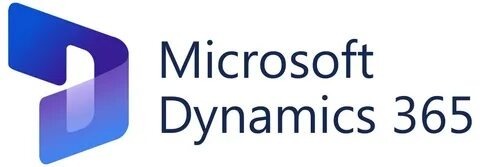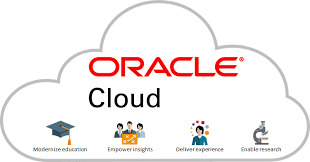#Dynamics 365 Supply Chain
Explore tagged Tumblr posts
Text
White Paper: The Urgent Need for Migrating from Dynamics AX 2012 R3 to Dynamics 365 Finance and Supply Chain
Executive Summary As of January 10, 2023, Microsoft officially ended extended support for Dynamics AX 2012 R3, a widely used ERP system. Despite this, many organizations around the world continue to rely on Dynamics AX 2012, exposing themselves to significant risks. This white paper explores the threats, vulnerabilities, and dangers associated with the continued use of an unsupported ERP system.…
#change management#compliance#cybersecurity risks#data migration#Dynamics 365 Finance#Dynamics 365 Supply Chain#Dynamics AX 2012 R3#end of support#ERP migration#ERP support#ERP upgrade#legacy system migration#Microsoft Dynamics#operational efficiency#Routeget Technologies#upgrade to Dynamics 365
0 notes
Text
Build stronger customer engagement with Dynamics 365 CRM
CRM Strategies To Enhance Customer Loyalty And Drive Sales
A robust CRM system can be a game-changer in a market where customer relationships are paramount. Focus Dynamics integrates Dynamics 365 CRM solutions to provide your customers with a seamless, personalised experience. Our CRM strategies are designed to improve customer engagement, streamline sales processes, and boost customer satisfaction.
With our CRM solutions, you can anticipate customer needs, personalise communications, and build lasting relationships that translate into business success.
#dynamics 365 supply chain#business central#dynamics 365 business central#dynamics business central#microsoft dynamics business central#dynamics 365 sales#dynamics 365 field service#dynamics 365 consultancy#dynamics 365 consultant#dynamics 365 consultants#dynamics 365 crm#dynamics implementation#dynamics crm#Microsoft dynamics 365 crm#crm#crm software
0 notes
Text
Are you tired of using multiple, disconnected software solutions to manage your business?
Meet Microsoft Dynamics 365, the intelligent business application that brings together Customer Relationship Management (CRM), operations, and data analytics in one seamless platform!
With Dynamics 365, you can easily store, access, and analyze all of your business data in one place, making it easier to make informed, data-driven decisions.
And with powerful tools for sales, customer service, field service, and more, Dynamics 365 helps you streamline your operations and deliver exceptional customer experiences.
Don't miss out on the benefits of Dynamics 365. Watch this video to learn more and see how it can transform your business!
Follow DynaTech Systems for more updates! For more contact on [email protected] Visit us : https://dynatechconsultancy.com/dynamics-365-sales-partner/
0 notes
Text
What is Supply Chain Management
Dynamics 365 Supply Chain Management In today's fast-paced business environment, effective management of supply chains is vital for maintaining competitiveness and operational efficiency. Dynamics 365 Supply Chain Management plays a pivotal role in transforming supply chains by enabling organizations to streamline their processes. A well-structured course in supply chain management can provide you with the essential skills and knowledge to harness the potential of Dynamics 365 Supply Chain Management, ensuring that you are well-prepared to meet the evolving demands of modern supply chains.

Supply chain management (SCM) encompasses the planning, execution, control, and monitoring of activities involved in sourcing, procurement, production, and logistics. With the use of advanced tools like Dynamics 365 Supply Chain Management, businesses can optimize their supply chain operations and gain visibility across the entire network. A course in SCM will not only introduce you to the core principles of supply chain management but will also equip you with the necessary expertise to use technologies like Dynamics 365 Supply Chain Management to improve efficiency, reduce costs, and meet customer demands.
What is Supply Chain Management?
Supply chain management is the coordination of various functions such as procurement, production, inventory, and transportation to ensure the seamless flow of goods and services from suppliers to customers. By integrating Dynamics 365 Supply Chain Management into your operations, you can gain end-to-end visibility across your supply chain, leading to better decision-making and enhanced customer satisfaction. In today’s globalized market, where businesses are highly interconnected, it is essential to have a comprehensive understanding of supply chain processes, and Dynamics 365 Supply Chain Management offers a robust platform to do just that. Dynamics Supply Chain
A key aspect of supply chain management is collaboration between multiple stakeholders, including suppliers, manufacturers, distributors, and customers. By utilizing Dynamics 365 Supply Chain Management, you can foster improved collaboration through real-time data sharing and streamlined communication. This allows businesses to respond more efficiently to market demands, reduce lead times, and minimize risks associated with disruptions in the supply chain. The ability to harness the capabilities of Dynamics Supply Chain tools will enable you to optimize inventory management, forecast demand more accurately, and enhance overall operational efficiency.
Tips for Effective Supply Chain Management
To effectively manage your supply chain, it’s crucial to understand the importance of leveraging the right tools and strategies. Here are some tips to enhance your supply chain management practices using Dynamics 365 Supply Chain Management:
1. Leverage Real-Time Data: Dynamics 365 Supply Chain Management provides real-time insights into every aspect of your supply chain. Use this data to make informed decisions and quickly address any disruptions or inefficiencies that may arise.
2. Optimize Inventory Levels: Maintaining the right balance of inventory is critical for preventing overstocking or stock outs. With Dynamics 365 Supply Chain Management, you can implement intelligent forecasting and automated reordering systems to ensure optimal inventory levels at all times.
3. Implement Predictive Analytics: Dynamics Supply Chain tools offer predictive analytics capabilities, allowing you to forecast future demand trends and anticipate potential issues before they occur. This can lead to reduced lead times and improved customer satisfaction.
4. Automate Processes: Automating routine supply chain processes such as order management and invoice processing can save time and reduce errors. Dynamics 365 Supply Chain Management allows you to automate key tasks, enabling your team to focus on more strategic activities.
6. Focus on Sustainability: Sustainability is becoming an increasingly important factor in supply chain management. Dynamics 365 Supply Chain Management helps you monitor and reduce your environmental impact by tracking carbon emissions and waste, and optimizing resource utilization.
Conclusion
In conclusion, taking a supply chain management course that includes training in Dynamics 365 Supply Chain Management can provide you with the expertise needed to excel in today’s complex and competitive business environment. Dynamics 365 Supply Chain Management offers powerful tools to optimize your operations, improve collaboration, and drive efficiency across your supply chain. By learning how to effectively use these tools and apply best practices in supply chain management, you can ensure that your organization remains agile, cost-effective, and responsive to market demands. Investing in a supply chain management course is a strategic decision that will benefit your career and the organizations you work with by enabling you to manage supply chains more efficiently and sustainably.
Visualpath Provides Best Dynamics 365 Supply Chain Management, India. Get an Dynamics 365 Course Online from industry experts and gain hands-on experience with our interactive program. We Provide to Individuals Globally in the USA, UK, Canada, etc. Contact us at 91-9989971070
Attend Free Demo
Call On 9989971070
Visit: https://visualpath.in/ms-dynamics-operations-trade-and-logistics-course.html
#Dynamics 365 Supply Chain Management#Dynamics Supply Chain#D365 Supply Chain Management#Microsoft Dynamics 365 Supply Chain Management#Microsoft Dynamics 365 Supply Chain#Microsoft D365 Supply Chain Management#D365 Supply Chain Management Functional#Microsoft Dynamics Course In Hyderabad
0 notes
Text
Improve Manufacturing's Operational Efficiency with Dynamics 365: Critical Role & Advantages

Modern industrial industries move quickly, therefore innovation and continuous improvement are crucial. In a world where things move so quickly, investing in or embracing new technologies is not enough.
Robust systems such as Microsoft Dynamics 365, also referred to as Microsoft D365, can significantly enhance operational efficiency for the manufacturing industry.
In this article, we emphasize the vital role Dynamics 365 for Manufacturing plays in attaining operational excellence in a variety of fields.
Reducing Noncompliance and Improving Quality
In addition to offering manufacturers comprehensive solutions for compliance management and quality control, Dynamics 365 also assists manufacturers in streamlining their processes. The Quality Management System (QMS) module makes sure that industry-specific quality standards and regulatory requirements are followed.
Using tools like Dynamics 365 Supply Chain Management, it also helps companies to track the provenance of their supplies, helping them to satisfy both legal and customer demands.
1 note
·
View note
Text
#Microsoft Dynamics 365#cloud-based ERP and CRM solution#Microsoft Dynamics 365 ERP implementation#Dynamics 365 integrate#Dynamics 365 Sales.#Dynamics 365 Customer Service.#Dynamics 365 Finance.#Dynamics 365 Supply Chain Management.#Dynamics 365 Human Resources.#Dynamics 365 Marketing.#Dynamics 365 Commerce.
0 notes
Text
0 notes
Text

Dynamics 365 Supply Chain Management Training
0 notes
Text
Guide on How to Upgrade from Dynamics AX 2012 to Dynamics 365
Dynamics AX 2012 has been a reliable and powerful enterprise resource planning (ERP) solution for many organizations for years. However, with the release of Dynamics 365, many businesses are now considering upgrading to the latest version to take advantage of its enhanced features and functionalities.
In this article, we will provide a step-by-step guide on how to upgrade from Dynamics AX 2012 to Dynamics 365.

Step 1: Plan your upgrade Before starting the upgrade process, it is essential to have a clear plan in place. Start by identifying the features and functionalities that are important to your organization and determine how Dynamics 365 can address those needs. Additionally, consider the timing of the upgrade, resource availability, and budget constraints.
Step 2: Perform a system assessment A system assessment is a crucial step in the upgrade process. This involves analyzing the current Dynamics AX 2012 environment, identifying any customizations or third-party integrations, and evaluating whether they can be migrated to Dynamics 365. You should also review hardware and software requirements for Dynamics 365 and ensure that your infrastructure meets those requirements.
Step 3: Prepare your data Data migration is an essential part of the upgrade process. You will need to extract data from your current Dynamics AX 2012 environment and prepare it for migration to Dynamics 365. This includes cleaning up data, resolving duplicates, and mapping fields to the new system. Additionally, you may need to consider migrating data from other sources, such as external databases or spreadsheets.
Step 4: Configure Dynamics 365 Once you have prepared your data, it's time to configure your Dynamics 365 environment. This involves setting up users, security roles, workflows, and other system settings. You may also need to configure integrations with other systems, such as Microsoft Power Platform, Power BI, or Office 365.
Step 5: Test the new environment Before going live, it's important to test the new Dynamics 365 environment thoroughly. This involves testing data migration, customizations, and integrations. You should also conduct end-to-end testing to ensure that the system functions as expected.
Step 6: Go live Once you have tested the new environment and ensured that everything is working correctly, it's time to go live. This involves migrating your data to the new environment and switching over to Dynamics 365. You should also provide training to users on the new system and offer support during the transition period.
Step 7: Post-go-live support After the upgrade, it's important to provide post-go-live support to ensure a smooth transition to Dynamics 365. This involves monitoring the system, resolving issues, and providing ongoing training to users.
In conclusion, upgrading from Dynamics AX 2012 to Dynamics 365 can be a complex process. However, by following the steps outlined in this article, you can ensure a smooth and successful upgrade. Remember to plan your upgrade carefully, perform a system assessment, prepare your data, configure Dynamics 365, test the new environment, go live, and provide post-go-live support.
#dynamics 365 managed services#d365 finance and operations#dynamics 365 for finance and operation#microsoft dynamics 365#microsoft power bi#microsoft dynamics 365 supply chain management#microsoft power bi data analyst
0 notes
Text

Dynamics Supply Chain: 5 Common Supply Chain Challenges Solved by Dynamics 365
Effective supply chain management is critical for business success in today’s fast-paced, competitive environment. With the growing complexities in logistics, procurement, and inventory management, companies are increasingly turning to modern solutions like Dynamics 365 Supply Chain Management. This robust platform is tailored to address key pain points in supply chain operations, offering businesses the tools they need to overcome challenges while boosting efficiency and scalability.
In this article, we explore five common supply chain challenges and how Dynamics 365 Supply Chain Management solves them. By understanding the capabilities of this platform, organizations can streamline their operations and thrive in a dynamic business landscape.
1. Challenge: Inefficient Inventory Management
Accurate inventory management is crucial to prevent overstocking, stockouts, and inefficiencies. Businesses often struggle to maintain optimal inventory levels, leading to lost sales and higher operational costs.
Solution: Dynamics 365 Supply Chain Management integrates real-time inventory tracking and forecasting. Its intelligent algorithms analyze demand patterns, helping businesses maintain the right stock levels. Moreover, it supports multi-warehouse management, allowing companies to efficiently monitor and distribute inventory across locations. With tools like predictive analytics, organizations can forecast demand trends and avoid disruptions.
2. Challenge: Poor Visibility Across the Supply Chain
Lack of end-to-end visibility creates bottlenecks, delayed deliveries, and miscommunication among supply chain stakeholders. This challenge hampers decision-making and increases risks.
Solution: Dynamics Supply Chain provides a centralized platform to monitor the entire supply chain. It enables businesses to track shipments, monitor supplier performance, and gain real-time insights into operations. The platform’s integration with IoT devices ensures up-to-date data on equipment and inventory. This comprehensive visibility empowers organizations to make proactive decisions and mitigate potential disruptions.
3. Challenge: Managing Complex Supplier Relationships
Supplier management can be challenging, especially for businesses with a global supply chain. Poor communication, delayed payments, and lack of performance metrics often result in inefficiencies.
Solution: D365 Supply Chain Management simplifies supplier collaboration through a unified platform. Businesses can automate supplier onboarding, manage contracts, and evaluate performance using built-in analytics. The solution also facilitates seamless communication between suppliers and procurement teams, ensuring timely deliveries and improved relationships. With its robust tools, businesses can strengthen supplier networks and maintain consistency in operations.
4. Challenge: Lack of Agility in Responding to Market Change
Rapid changes in market demands and unexpected disruptions, such as natural disasters or economic fluctuations, can derail supply chain operations. Businesses often find it hard to adapt quickly.
Solution: Dynamics 365 Supply Chain Management is designed to enhance supply chain agility. By leveraging advanced analytics and machine learning, businesses can simulate different scenarios and create contingency plans. Its ability to integrate with other Microsoft tools, such as Power BI, ensures that decision-makers have actionable insights at their fingertips. This adaptability allows organizations to pivot swiftly in response to market changes and maintain customer satisfaction.
5. Challenge: Inefficient Production Planning
In manufacturing and logistics, poorly planned production schedules can lead to wasted resources, delayed timelines, and unmet customer demands.
Solution: Dynamics 365 Supply ChainManagement optimizes production planning with its intelligent scheduling tools. It helps businesses align their production schedules with demand forecasts, ensuring resource optimization. The platform also facilitates lean manufacturing practices, reducing waste and maximizing productivity. These capabilities enable businesses to deliver products on time while minimizing costs.
Conclusion
In an era where supply chain efficiency can make or break a business, Dynamics 365 Supply Chain Management stands out as a game-changing solution. By addressing challenges like inventory inefficiencies, lack of visibility, and supplier complexities, this platform empowers businesses to streamline operations and enhance decision-making. Its advanced tools, including real-time analytics, IoT integration, and intelligent forecasting, ensure that companies remain agile and competitive in the face of market uncertainties.
Whether you're looking to optimize production planning, improve supplier relationships, or gain end-to-end visibility, Dynamics Supply Chain is the key to unlocking your organization's full potential. For businesses seeking to modernize their operations and embrace digital transformation, D365 Supply Chain Management offers unparalleled value. Start your journey with Dynamics today and revolutionize your supply chain for sustained success.
Join Visualpath is a best institute in Hyderabad offering Dynamics 365 Supply Chain Management with real-time expert instructors and hands-on projects. Our D365 Supply Chain Management, from industry experts and gain experience We provide to individuals globally in the USA, UK, etc. To schedule a demo, call +91-9989971070.
Key Points: Financial control, Worker control, Deliver chain management.
Attend Free Demo
Call Now: +91-9989971070
Whatsapp: https://www.whatsapp.com/catalog/919989971070
Visit our Blog: https://visualpathblogs.com/
Visit: https://www.visualpath.in/online-dynamics-365-supply-chain-management.html
#Microsoft D365 Supply Chain Management Training#Dynamics 365 Supply Chain Management#Dynamics Supply Chain#D365 Supply Chain Management#Microsoft Dynamics 365 Supply Chain Training#Microsoft D365 Supply Chain Management#D365 Supply Chain Management Functional#Dynamics 365 Supply Chain Course Online
0 notes
Text
Manufacturing ERP: The Top 10 ERP Systems for 2024
Introduction:
In the dynamic landscape of the manufacturing industry, the right technology can make all the difference in streamlining processes and enhancing overall efficiency. Manufacturing Enterprise Resource Planning (ERP) systems have become indispensable tools for businesses seeking to integrate various facets of their operations seamlessly. As we step into 2024, the demand for robust ERP solutions continues to grow. In this blog, we will explore the top 10 Manufacturing ERP systems that are poised to make a significant impact on the industry this year.

1. SAP S/4HANA: Pioneering Manufacturing Resource Planning System
One of the most trusted names in ERP, SAP S/4HANA stands out as a comprehensive Manufacturing Resource Planning System. Its real-time analytics, integrated modules, and intelligent automation make it an ideal choice for businesses aiming to optimize their manufacturing processes.
2. Oracle ERP Cloud: Empowering Manufacturing Enterprise Resource Planning
Oracle ERP Cloud offers a scalable and flexible solution for manufacturing enterprises. With its robust features, it caters to the diverse needs of businesses, ensuring a seamless integration of manufacturing operations. Its cloud-based architecture provides the agility required for modern manufacturing environments.
3. Microsoft Dynamics 365: A Versatile ERP Solution
Microsoft Dynamics 365 is gaining prominence as a Manufacturing Enterprise Resource Planning software that offers versatility and integration capabilities. Its user-friendly interface and interoperability with other Microsoft products make it an attractive choice for businesses, especially small enterprises.
4. Infor CloudSuite Industrial: Tailored Manufacturing ERP
Infor CloudSuite Industrial is designed with the unique needs of manufacturers in mind. It provides specialized functionalities, including supply chain management and shop floor control, making it a standout choice among ERP solution providers.
5. NetSuite ERP: Unifying Manufacturing Operations
NetSuite ERP is recognized for its ability to unify diverse manufacturing operations into a single, cohesive system. Its cloud-based platform allows for real-time collaboration and data accessibility, making it an efficient Manufacturing Enterprise Resource Planning Software.
6. Epicor ERP: Driving Growth for Small Businesses
Epicor ERP is particularly well-suited for small businesses in the manufacturing sector. With its focus on driving growth and improving efficiency, Epicor ERP offers a cost-effective solution without compromising on essential features.
7. IFS Applications: Comprehensive ERP Solution
IFS Applications is a comprehensive ERP solution that covers a wide range of manufacturing processes. Its modular structure allows businesses to tailor the system according to their specific requirements, making it a preferred choice for Manufacturing Enterprise Resource Planning.
8. IQMS Manufacturing ERP: Enhancing Shop Floor Control
IQMS Manufacturing ERP is distinguished by its emphasis on shop floor control and real-time monitoring. It empowers manufacturers with tools to optimize production processes and make informed decisions, positioning it as a top choice among ERP solution providers.
9. Acumatica Cloud ERP: Scalability for Growing Businesses
Acumatica Cloud ERP stands out for its scalability, making it an ideal choice for growing manufacturing businesses. With a flexible platform and advanced features, Acumatica supports businesses in adapting to changing demands and expanding their operations seamlessly.
10. SYSPRO ERP: Tailored for Manufacturing Success
SYSPRO ERP is tailored to meet the specific needs of manufacturing industries. Its focus on delivering a user-friendly experience and addressing industry challenges positions it as a reliable choice for Manufacturing Enterprise Resource Planning.
Conclusion:
As manufacturing industries evolve, the importance of robust ERP systems cannot be overstated. The top 10 ERP systems highlighted in this blog represent the cutting edge of technology, offering solutions that cater to the unique demands of the manufacturing sector. Whether it's SAP S/4HANA's real-time analytics, Oracle ERP Cloud's scalability, or Acumatica Cloud ERP's flexibility, each system brings its own strengths to the table.
For businesses in Madhya Pradesh seeking Manufacturing Software for Small Business, these ERP solutions provide a pathway to enhanced productivity and streamlined operations. Choosing the right Manufacturing ERP system is a critical decision that can impact a company's growth and competitiveness. Evaluate the features, scalability, and industry focus of each system to find the perfect fit for your manufacturing enterprise. Embrace the power of ERP in 2024 and position your business for success in the ever-evolving landscape of manufacturing technology.
#Manufacturing Software for Small Business#Manufacturing Enterprise Resource Planning Software#ERP Solution Providers in Madhya Pradesh#Manufacturing Enterprise Resource Planning#Manufacturing Resource Planning System#ERP Software#Chain Cycle Management#Business#Engineering#Manufacturing#India#Madhya Pradesh#Go-To-Market#GTM#ERP
7 notes
·
View notes
Text
The Crucial ERP System Examples: Transforming Business Operations

In today’s fiercely competitive business realm, the quest for operational efficiency and streamlined management is paramount. Enterprise Resource Planning (ERP) systems stand tall as technological marvels, revolutionizing the way businesses operate. These robust software solutions amalgamate various functions within a unified framework, enabling seamless coordination across departments and facilitating data-driven decision-making.
This exploration ventures into the realm of ERP systems, shedding light on a spectrum of exemplary solutions that have reshaped modern business operations. From stalwarts like SAP ERP and Oracle ERP Cloud to innovative players like Microsoft Dynamics 365 and Odoo, each system represents a unique amalgamation of features, functionalities, and industry applications.
This comprehensive journey traverses the functionalities, industry adaptability, and transformative potentials of these ERP systems. Understanding their intricacies is pivotal for businesses seeking to optimize processes, unlock efficiencies, and navigate the complexities of today’s business landscape. Join this insightful exploration to unravel the significance and impact of these ERP system examples in shaping the future of business operations.
ERP System Examples
1. SAP ERP: Revolutionizing Business Management
SAP ERP has solidified its position as a leader by providing an all-encompassing suite covering critical business functions. Beyond its core modules in finance, HR, and supply chain, SAP offers specialized applications for industry-specific needs. For instance, SAP S/4HANA, an intelligent ERP, integrates AI and analytics for real-time insights, empowering businesses to adapt swiftly to market changes.
The scalability of SAP ERP is noteworthy, catering to startups aiming for growth and global corporations managing complex operations. It provides modular solutions, enabling businesses to adopt specific functionalities based on their immediate needs.
2. Oracle ERP Cloud: Innovating Operations in the Cloud
Oracle ERP Cloud’s robust suite extends far beyond traditional ERP capabilities. It embraces emerging technologies like AI, machine learning, and blockchain to drive innovation. Its predictive analytics empower businesses to anticipate market trends, optimize supply chains, and mitigate risks effectively.
The cloud-based structure of Oracle ERP Cloud ensures not just accessibility but also scalability without compromising security. It enables seamless integration with other Oracle Cloud applications, fostering a unified ecosystem for comprehensive business management.
3. Microsoft Dynamics 365: Integrating CRM and ERP Capabilities

Microsoft Dynamics 365 is a fusion of CRM and ERP functionalities, providing a holistic platform for businesses. Unlike its core ERP modules, Dynamics 365 offers advanced tools for customer engagement, field service, and marketing automation. Its flexibility lies in its modularity, allowing businesses to tailor their systems by choosing specific applications that align with their objectives.
Moreover, its integration with Microsoft Office 365 and Power Platform strengthens collaboration and data analysis, facilitating informed decision-making across departments.
4. NetSuite: Empowering Diverse Industries
NetSuite’s cloud-based ERP system addresses the complex needs of various industries. Its suite encompasses solutions for financial management, e-commerce, and inventory control. Beyond the core ERP functionalities, NetSuite offers industry-specific modules, such as SuiteCommerce for retail businesses and SuiteSuccess for services, enhancing its appeal across diverse sectors.
The scalability and adaptability of NetSuite make it a preferred choice for businesses experiencing rapid growth or seeking to expand into new markets.
5. Infor ERP: Tailored Solutions for Specific Sectors
Infor’s industry-specific ERP solutions cater to the nuanced requirements of sectors like healthcare, manufacturing, and distribution. In addition to its standard ERP functionalities, Infor focuses on specialized applications such as Infor CloudSuite Healthcare for healthcare organizations and Infor LN for manufacturing, ensuring tailored solutions for sector-specific challenges.
Infor’s commitment to innovation and addressing sector-specific complexities underscores its relevance in the ERP landscape.
6. Epicor ERP: Amplifying Industry Operations

Epicor ERP excels in catering to industries such as manufacturing, distribution, retail, and services. Its core ERP functionalities are complemented by advanced analytics and business intelligence tools. Epicor’s Smart Inventory Planning and Optimization (IPO) tool, for instance, utilizes AI to enhance inventory management, improving efficiency and reducing costs.
Moreover, its agile architecture enables easy customization and integration with third-party applications, providing businesses with a highly adaptable solution.
7. Odoo: Flexibility and Customization
Odoo’s open-source ERP system offers an extensive suite of applications covering CRM, inventory management, project management, and more. What sets Odoo apart is its modular nature, allowing businesses to select and integrate specific applications as per their requirements. Odoo’s flexibility and affordability are especially beneficial for small to medium-sized enterprises seeking customizable solutions without exorbitant costs.
The Value of ERP Systems in Modern Business
ERP systems serve as catalysts for efficiency, productivity, and growth:
Streamlined Operations: Automating tasks streamlines processes, reducing manual errors and optimizing resource allocation.
Enhanced Data Management: Centralized databases ensure data consistency and accuracy, fostering informed decision-making.
Agile Decision-Making: Real-time data access empowers businesses to make agile decisions, staying ahead in dynamic markets.
Customer-Centric Approach: Integrated CRM functionalities enable businesses to deliver personalized services, boosting customer satisfaction and loyalty.
Making Informed Choices: Selecting the Right ERP System

The process of choosing an ERP system involves careful evaluation and alignment with a business’s unique needs. Understanding the scalability, integration capabilities, and industry-specific functionalities of each system is crucial for successful adoption.
Conclusion: Embracing ERP Systems for Sustainable Growth
The landscape of ERP systems continues to evolve, offering businesses versatile solutions to streamline operations, enhance efficiency, and foster sustainable growth. From SAP’s scalability to Oracle’s cloud-driven innovation and Odoo’s customization prowess, each system exemplifies the diverse capabilities shaping modern business management.
Selecting the right ERP system aligned with specific needs remains pivotal for organizations seeking resilience and competitiveness. As businesses strive for optimization and adaptability, embracing these transformative technologies ensures a strategic advantage in an ever-evolving market. It stands as a pillar of efficiency, empowering businesses to navigate complexities and drive success through informed decisions and streamlined operations.
Also Read: A Deep Dive into Corporate Wellness Programs for a Healthier, Happier Workplace
#ERPRevolution#BusinessTransformation#TechInnovation#DigitalTransformation#EnterpriseSolutions#InnovationInBusiness#TechLeadership
2 notes
·
View notes
Text
How does Microsoft Dynamics 365 Supply Chain Management System help businesses?
An efficient supply chain management demands effective risk management, and risk/agility KPIs in addition to the traditional KPIs of cost, service and quality. The key to achieving such management is the adoption of an automation tool like Microsoft Dynamics 365 Supply Chain Management (SCM) System.
Dynamics 365 SCM application provides the core competencies to address the challenges that businesses come across every day.
Microsoft Dynamics 365 Supply Chain Management provides businesses with a range of tools and capabilities to manage their supply chain operations. Here are some of the key features that are included in the Dynamics 365 SCM Services are:
Procurement: The system enables businesses to manage their purchasing processes, including supplier selection, purchase order creation, and invoice processing.
Inventory Management: Microsoft Dynamics 365 Supply Chain Management provides businesses with tools to optimize inventory levels and reduce carrying costs, including demand forecasting, inventory tracking, and reorder point calculation.
Production Planning: The system includes features for production scheduling, capacity planning, and resource management, helping businesses to optimize their manufacturing processes and improve efficiency.
Quality Control: Microsoft Dynamics 365 Supply Chain Management includes quality control tools to help businesses ensure that their products meet customer requirements and comply with regulatory standards.
Logistics Management: The system provides businesses with tools to manage their logistics operations, including transportation planning, route optimization, and warehouse management.
Analytics: Microsoft Dynamics 365 Supply Chain Management incorporates advanced analytics capabilities, including real-time dashboards and predictive analytics, to help businesses gain insights into their supply chain performance and make data-driven decisions.
Microsoft Dynamics 365 Supply Chain Management is a comprehensive platform that can help businesses streamline their supply chain operations, reduce costs, and improve efficiency.
2 notes
·
View notes
Text
Exploring the Top ERP Providers in India: Streamlining Business Operations
In today's fast-paced business environment, effective management of resources, streamlined processes, and data-driven decision-making is critical for sustainable growth. Enterprise Resource Planning (ERP) systems have emerged as powerful tools that integrate key business functions, enabling seamless collaboration and boosting overall productivity. India, with its vibrant business landscape, hosts a multitude of ERP providers offering comprehensive solutions. In this blog, we will delve into the top 11 ERP providers in India, exploring their key offerings, strengths, and how they empower businesses to achieve their goals.
Here Is The Top 11 ERP Providers
SAP India :
SAP, a global leader in enterprise software, has established itself as a frontrunner in the Indian ERP market. Renowned for its comprehensive suite of ERP solutions tailored for diverse industries, SAP offers modules covering finance, supply chain, human resources, customer relationship management, and more. With a strong focus on scalability, robustness, and the ability to handle complex business processes, SAP India provides reliable support, extensive training resources, and regular updates to help businesses stay ahead.

Oracle India :
Oracle, a prominent ERP provider, delivers integrated applications designed to streamline business operations. With modules spanning finance, procurement, manufacturing, sales, and customer service, Oracle ERP solutions cater to organizations of all sizes and industries. Its strength lies in handling large-scale enterprises, complex supply chains, and global operations. Oracle India boasts a robust customer base and offers comprehensive support, training, and implementation services to ensure successful ERP adoption.

Microsoft Dynamics 365 :
Microsoft Dynamics 365 is a popular ERP provider offering a unified platform for finance, operations, sales, and customer service. With a user-friendly interface and seamless integration with other Microsoft products, Dynamics 365 simplifies processes and empowers businesses to make data-driven decisions. Its cloud-based nature allows scalability, flexibility, and easy accessibility. Microsoft provides extensive support, regular updates, and a vibrant user community, making the implementation and maintenance of Dynamics 365 a smooth experience

Quickensol it solutions QuickenSol IT Solutions emerges as a reliable ERP service provider, offering comprehensive solutions tailored to meet diverse business needs.QuickenSol IT Solutions empowers organizations through its robust ERP services, innovative technologies, and customer-centric approach. From seamless integration to enhanced data visibility, QuickenSol IT Solutions is dedicated to helping businesses achieve their growth objectives and stay ahead in a competitive market. quickensol offers a module covering finance, education, real estate, agriculture, laboratory, e-commerce, healthcare, insurance, logistics, construction industry, project management, and manufacturing. Quickensol offers strong customer support, an extensive knowledge base, and regular feature updates, making it a popular choice for Indian organizations seeking a reliable ERP solution.

Tally Solutions: Tally Solutions has earned the trust of small and medium-sized businesses (SMBs) in India. Their ERP software focuses on accounting and inventory management, enabling organizations to handle financial transactions, track inventory, and generate accurate reports. Tally's user-friendly interface, affordability, and localization capabilities have made it a preferred choice for Indian businesses. Tally offers comprehensive training, robust support, and regular software updates to ensure effective financial management for SMBs.
Zoho ERP :
Zoho, a prominent player in the business software market, provides a comprehensive suite of applications, including ERP solutions. Zoho ERP covers finance, inventory management, CRM, HR, and more. Known for its affordability, ease of use, and customization options, Zoho ERP caters to businesses of all sizes. The cloud-based nature of Zoho ERP allows for seamless data access, collaboration, and integration across departments. Zoho offers strong customer support, an extensive knowledge base, and regular feature updates, making it a popular choice for Indian organizations seeking a reliable ERP solution.
Ramco Systems :
Based in Chennai, Ramco Systems is an Indian ERP provider renowned for its cloud-based ERP software. Ramco offers modules for finance, HR, supply chain, manufacturing, and more, targeting various industry verticals. Their ERP solutions emphasize mobility, automation, and analytics, enabling businesses to make informed decisions and achieve operational excellence. Ramco provides comprehensive support, an easy implementation process, and regular software updates, ensuring a smooth ERP experience for organizations.
Infor India :
Infor, a global provider of industry-specific ERP solutions has a strong presence in the Indian market. Infor India offers comprehensive ERP modules tailored to specific industry verticals such as manufacturing, healthcare, hospitality, and more. Their solutions focus on process efficiency, supply chain optimization, and customer engagement. With an intuitive interface and robust functionality, Infor ERP empowers businesses to drive growth, enhance productivity, and respond swiftly to market demands.
Epicor India :
Epicor is a renowned ERP provider offering industry-specific solutions designed to meet the unique needs of organizations. Epicor India's ERP modules cater to manufacturing, distribution, retail, and services sectors. Their solutions enable businesses to streamline operations, improve customer experiences, and gain actionable insights through advanced analytics. With a strong focus on automation, scalability, and digital transformation, Epicor empowers Indian businesses to compete effectively in a rapidly evolving market.
IFS India :
IFS, a global leader in ERP software, serves businesses across various industries in India. IFS India's ERP solutions encompass modules for enterprise asset management, field service management, manufacturing, and more. The company emphasizes functionality, flexibility, and usability to ensure seamless adoption and improved operational efficiency. With their customer-centric approach and industry-specific expertise, IFS empowers organizations to optimize processes, enhance productivity, and achieve growth objectives.
Sage India :
Sage is a leading provider of ERP solutions, offering modules for finance, accounting, inventory management, and more. Sage India's ERP software caters to small and medium-sized businesses, providing them with robust tools to manage core business functions effectively. With a focus on simplicity, customization, and scalability, Sage empowers organizations to streamline operations, gain better financial visibility, and make informed decisions. Sage's commitment to customer support and continuous innovation has earned them a strong reputation in the Indian market.
Conclusion :
Selecting the right ERP provider is a crucial decision for any organization aiming to streamline operations and drive growth. The top 11 ERP providers in India, such as SAP India, Oracle India, Microsoft Dynamics 365, Quickensol IT Solution, Tally Solutions, Zoho ERP, Ramco Systems, Infor India, Epicor India, IFS India, and Sage India, offer diverse ERP solutions tailored to meet specific industry requirements. These providers empower businesses with advanced features, scalability, robust support, and seamless integration, enabling them to optimize processes, make data-driven decisions, and achieve their growth objectives. Careful evaluation of business needs, industry focus, and the unique capabilities of these ERP providers is essential to select the best fit for organizational success.
6 notes
·
View notes
Text

Dynamics 365 ERP consulting offers businesses guidance and support in implementing, customizing, and optimizing Microsoft Dynamics 365 enterprise resource planning (ERP) software. With a focus on improving operational efficiency, financial management, and supply chain visibility, Dynamics 365 ERP consulting helps organizations streamline their business processes and make data-driven decisions. Services may include software selection, installation, training, ongoing support, and software integrations with other business systems.
#Microsoft Power Platform Consulting#Power Apps Development#Power BI Consulting#Dynamics 365 Partners
2 notes
·
View notes